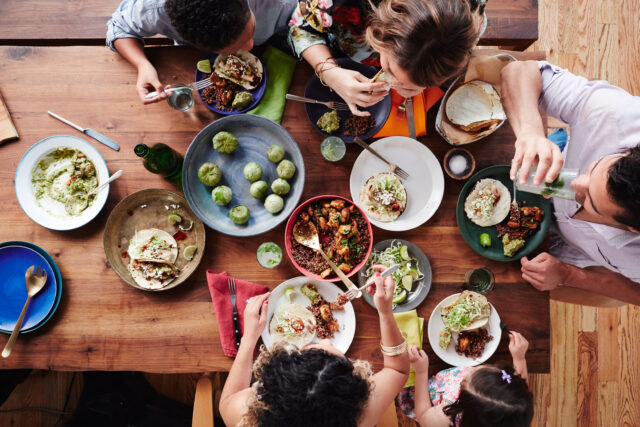This is Holy Week, a sacred time when through ritual and symbolism we remember and give thanks for the great sacrifice Jesus made for each one of us.
Jesus in the Gospels spent much time having meals and sharing conversation, friendship, solidarity often with those who found themselves on the periphery.
This Holy Week, I sincerely pray for the Ukrainian community, who have come to our island, under horrendous circumstance and yet are overwhelmed by the hospitality and welcome they receive.
This week we celebrate hope. God’s light is brighter than the darkness of evil. Scripture reminds us, “By his wounds we are healed”.
To invite a person to your house for a meal is universally regarded as a sign of hospitality, a gesture of welcome. It is a way of creating unity with others. This is expressed in the language we use.
The English word ‘companion’ comes from two Latin words: “co” or “com-“ meaning “together”, as in co-operate or commiserate, and “Panis”, the Latin for bread. A companion is, literally, a person you have shared bread with.
A family meal is more than a group intake of food. It is a primary means of civilisation in which we learn, while children, to curb our natural instinct to selfishness. It tames the barbarian in us.
Through it we learn to share rather than grab as babies do. The underlying principle of good table manners is the same as the underlying principle of good social behaviour: think of others before yourself.
A meal may be an opportunity for reviewing and interpreting the events of the day, for listening to each other, for learning the art of dialogue.
It gives an opportunity for easing tensions, sharing a joke, having a laugh. It’s an occasion for giving time and energy to each other, and to learn to sacrifice. It introduces us to the value of ritual and ceremony. It can build family bonds. A meal may have a sacramental character.
It’s good to have cooked family meals, rather than fall back on something taken from the freezer, put into the microwave for a few minutes and then eaten while sitting or lying on the floor in front of a TV, or alone in a bedroom while on the internet.
Having meals together may enhance the quality of family life. Sharing in the work of the meal, such as setting the table or washing the dishes, provides an opportunity to learn about joint responsibility for the family.
And the ordinary give-and-take of conversation, reminiscences, jokes, correction, and the exchange of hopes and expectations create bonds that are irreplaceable.
The family that eats together, meets together – and stays together. There’s a down-side to the technology of microwave and dishwasher: they shorten time spent in the kitchen, which was often time spent together. The time saved may be spent apart, in the isolation of watching TV in separate rooms.
In Saint Luke’s Gospel, Jesus is very often either going to a meal, or at a meal, or coming from a meal. In his life, meals were places where significant things sometimes happened.
One such example was after his resurrection, when the Gospel says that two of his disciples met Jesus one day as they were walking along a road. They didn’t recognise him until they stopped to have a meal together.
The Gospel says, ‘The disciples recognised Jesus in the breaking of bread’, that is to say, having a meal. (Luke 24.35) Sometimes we also recognise one another in a meal, coming to accept each other where before there may have been ignorance, misconceptions, or misunderstandings.
If it’s a long time since you’ve invited anyone to your house for a meal, maybe you could consider it, starting with someone who doesn’t expect it.
Community doesn’t happen; it has to be built. I pray, that the joy and light that comes from the Easter story will continue to inspire hope and inspiration for us all.
SEE ALSO – Fr Paddy: The danger of keeping silent






















